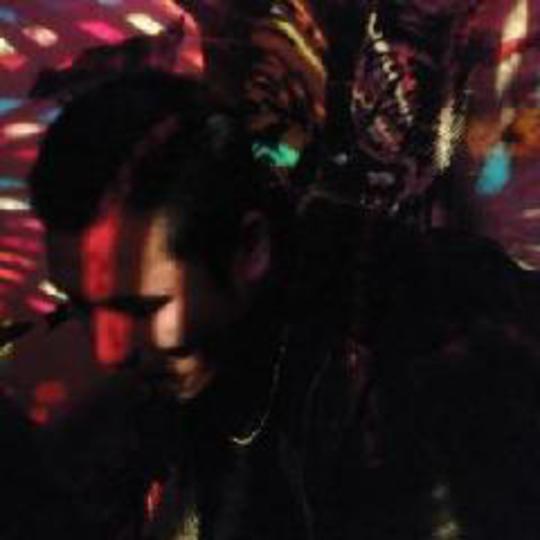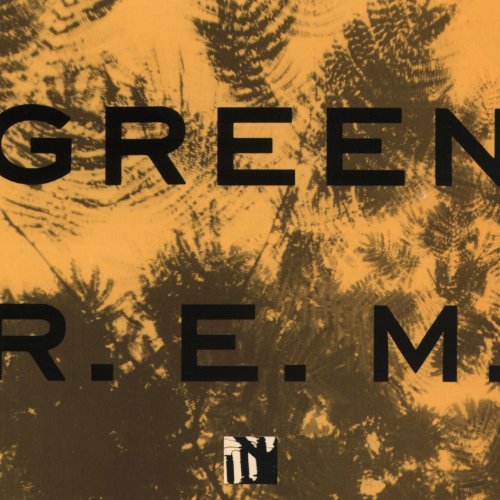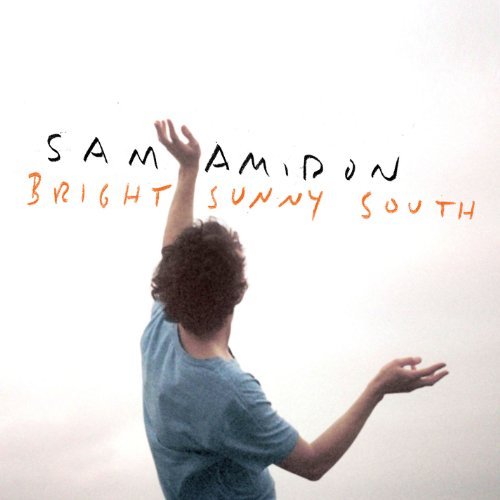Roald Dahl once said 'Never do anything by halves'. Whether Alex Zhang Hungtai is a fan of the Welsh author is unknown, but he's certainly taken the old adage at its most literal if the dual combination of Drifters/Love Is The Devil are anything to go by.
Already regarded as one of the most prolific writers and musicians in the current climate - having put out a staggering 25 releases in just five years - Canadian Hungtai aka Dirty Beaches has somehow managed to go the extra mile here. While Drifters/Love Is The Devil represents his first proper full release of 2013, it's a mammoth creation split into two distinctly separate parts documenting the 'heartbreak, rebirth and masochistic existential self-reflection of life on the road' (his words not mine). Recorded intermittently between locations as disparate as Berlin and Montreal last winter, there's something quite therapeutic about the way Hungtai changes persona at the drop of a hat. Indeed, while both records have their own distinctive guises and styles, their creator insists they were always intended to be heard as one coherent piece. Which, considering they clock in at a whopping 75 minutes combined, makes for an uneasy and occasionally wavering listening experience.
Consisting of 16 pieces in total - a 50-50 split that veers between taut, lo-fi underground dance configurations (Drifters) and abstract, almost film score-like incidental creations (Love Is The Devil) - it's an ambitious project that doesn't quite live up to the audacious billing Hungtai intended. Brilliant in places, difficult in others, even bordering on the unlistenable at times, Drifters/Love Is The Devil would perhaps have been better served as two individual entities rather than the deluge of overload that stands before us.
Nevertheless, Hungtai should be applauded for once again diversifying from the many previously trodden paths he's chosen to embark upon. If its predecessor, 2011's Badlands suggested Hungtai and Dirty Beaches were about to aboard the surf train to the garage of iniquity reserved exclusively for Cramps devotees, both of these records will come as an almighty surprise.
Starting with the lo-fi, dirty sounding processed beat-laden Drifters, a record that owes much to post-punk experimentalists such as A Certain Ratio, Cabaret Voltaire or Clock DVA as it does anything this side of the millennium. Opener 'Night Walk' standing out as possibly Hungtai's finest four minutes to date, encompassing all of the above alongside a lazy, hypnotic groove and indiscernible vocals so low in the mix their presence acts as an extra form of instrumentation rather than exercise in storytelling. 'I Dream In Neon' could be Clinic doing their finest Depeche Mode mpersonation in a parallel universe. That it's entirely the work of one man speaks volumes for Hungtai's undoubted talents as a songwriter, musician and producer of considerable merit. At times inspired by primitive tribal rhythms as on the coarsely orchestrated 'Casino Lisboa', other times abstract,discordant and obtuse; 'ELLI' and 'Landscapes In The Mist' fitting each bill respectively at various intervals. It's on the colossal three-songs-in-one 'Mirage Hall' where Drifters lives up to its name. Layered New Order-style keys giving way to ambient textures before Hungtai progresses into an alter ego of Scott Walker's Tilt in the final third providing food for thought. From a listening perspective Drifters is an engaging, and often intriguing concoction.
Slightly less appetising is the drawn out and mostly instrumental ambience of Love is the Devil. Mirroring the score set to a dialogue of a sinister thriller - at least by way of execution - Love Is The Devil veers between symphonic beauty ('Woman'), oriental flavoured traditionalism ('This Is Not My City') and throbbing, cerebral distophia (the disturbingly visceral finale of 'Berlin'). Hungtai's thought processes whilst making the record perhaps best described by the haunting ambience of the title track he claims was made in a paradoxical state of fear whilst crying his eyes out and punching himself in the face. Lighthearted it most definitely isn't. At one point there's even a desolate rewrite of Barbara Streisand's 'The Way We Were', albeit in Hungtai's own inimitable style on the sparse 'Alone At The Danube River'. There's even time for a sombre acoustic lament in the shape of 'Like The Ocean We Part', a lovelorn ode to heartbreak and less that best sums up Love Is The Devil.
Maybe it's for the best that Hungtai gets his double dose of despair and melancholy out of his system. By the time 'Berlin' draws its and Love Is The Devil's last breath, one can sense the relief pouring out of him. Isolated, disparaging and ultimately self-referential, Hungtai has delivered an album that might not sit well with those in thrall to the more upbeat constructions of his previous works, but on the basis of both Drifters and Love Is The Devil, there's an eerily romantic side to Dirty Beaches waiting to mature with age.
-
7Dom Gourlay's Score






















